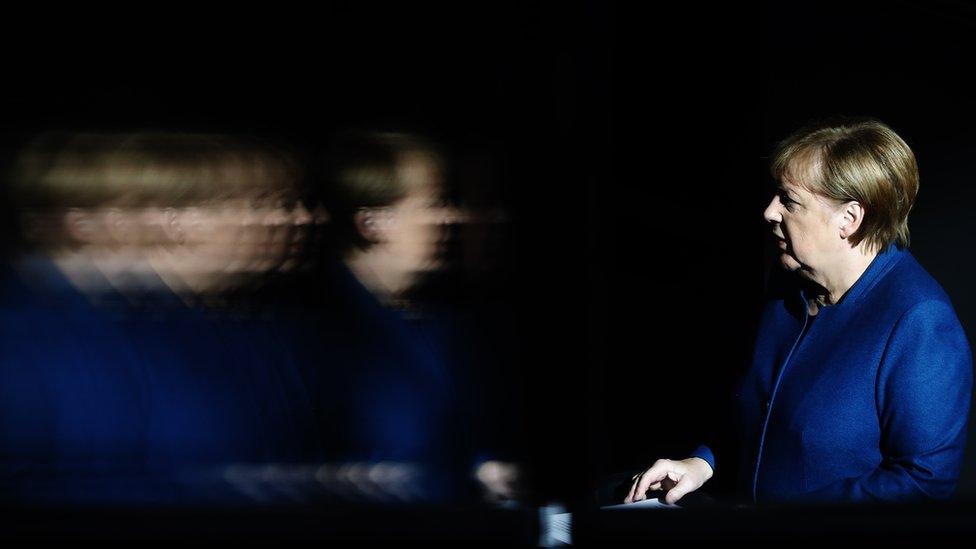Post-Brexit: Will a new leader of the EU emerge?
- Published

The prospect of Brexit looms large in Berlin these days and people are not happy about it. "We lose Britain, and we keep Italy: it's grotesque", one former minister commented ruefully to me.
That barbed remark lays bare a real anxiety among Germans, that somehow the European Union's centre of gravity will shift once the UK has gone, that a delicate balance will be upset, and it will not be in Berlin's favour.
Identifying Italy hints at one source of concern, that the southern Europeans will want to carry in their free spending way.
What was for a long time the subtext of European debates, that Germany can be expected to subsidise the others because of war guilt as well as the strength of its economy, became increasingly overt during the Greek debt crisis.
Now Italy, with far larger debts, is on a budgetary collision course with the EU.
There is though another aspect to the comments one hears these days about how the post-Brexit EU might function, and it hints at a deeper and more emotive schism.
If a generation of German politicians has hailed the European project as a triumph for peace this was at least in part because it has provided a way of converting long rivalry with France from the cause of 20th Century wars to the 'engine' of the Continent's economic success.
Now though one hears disparagement of France and its president Emanuel Macron from different political quarters.
A senior German journalist, commenting on the prominence given to Angela Merkel's meetings with President Macron to mark the 100th anniversary of the First World War armistice, said to me, anger in her voice, "you see? This is our future, this will have to be our future partner, because you are leaving".
Meeting Alexander Gauland, leader of the right wing Alternative for Germany party in his spectacular office overlooking the Reichstag, he too cannot hold back on the subject on France.
"The British are the only believers in free trade," he told us in a Newsnight interview, "the French are bureaucratic in a way we don't like in our party".
Of course there are still pro-French voices in German politics, including those who feel that Chancellor Merkel has missed a real opportunity to build the Eurozone by spurning Mr Macron's proposals for further financial integration.
But in my recent contacts at least, I have noticed rather more members of the German establishment who reject what the president stands for, suspecting another attempt to get Germany to finance French public spending and worrying about the destabilizing effect of Brexit.
"For decades there has been a delicate triangle of power running Europe," the former minister quoted earlier says, "and with Berlin, Paris, and London each playing their own distinctive role".
His concern is that removing the UK, with its big contributions to European security and financial prudence will lead to bigger problems for the EU.
Germany, even during the long Merkel years, has been diffident about playing the leadership role in Europe.
It is comfortable with tactical interventions on monetary or political matters, much less so in flexing diplomatic or military muscle. The prospect of Brexit has brought the realization that France may now try to fill this vacuum.
While many German politicians are uneasy about the idea of leading Europe, it seems that the idea of letting President Macron (who one person I was talking to this week in Berlin called, "a charlatan") play that role by default disturbs them.
Indeed it may rankle so much that it causes Germany to abandon its post Second World War reluctance to exert its power in Europe.
You can watch Newsnight on BBC 2 weekdays 22:30 or on iPlayer. Subscribe to the programme on YouTube, external or follow them on Twitter, external.